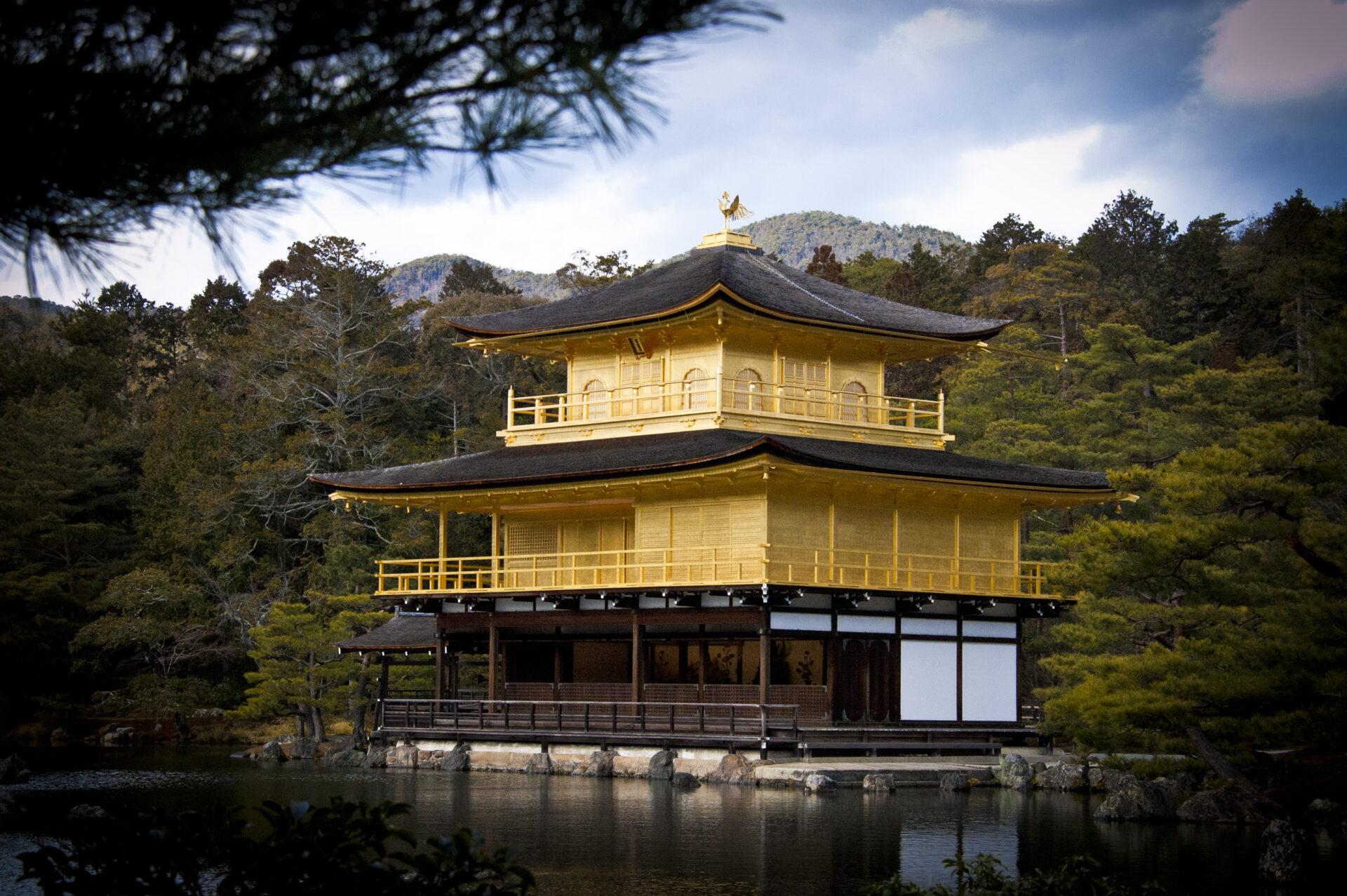Ah, the Land of the Rising Sun… So fascinating and mysterious that it seems like another world. Who never dreamed of meeting her? That's why we've prepared a list of some things you need to know before traveling to Japan!

I have a fascination with Japanese culture and recently started thinking about fulfilling my dream of traveling to Japan with my husband, who is of Japanese descent. After researching a lot and reading a great guide from Rough Guide, I compiled some information that I think is very important for anyone thinking about going there – some practical things, others cultural things that can help organize this incredible trip. Let's go:
1 – The flights are long. You take two planes to go and also two to return from Japan – the connection is usually in Dubai, the United States or England – this varies depending on the airline you choose. Therefore, it is recommended to stay at least two weeks (or more!) in Japan. After all, all this effort and also the time difference has to be worth it! Do the math: 22 hours in the air + boarding time + waiting for the connecting flight… It’s quite a trip!
2 – Compre o Japan Rail Pass – When you get your visa to travel to Japan in São Paulo, you can already purchase the Japan Rail Pass, or JR Pass, as most people say or write in the same place. If you prefer, you can buy your Japan Rail Pass at this link here, very easy! With it, you can get the shinkansen (bullet train), trains and subways on the JR line. Keep an eye on the trains.jp app to find out the subway routes. For more information about the visa, check the Japanese Visa Center website – it is usually ready in a week or so.

3 – Find out about the use of Wi-Fi connection – In Japan, it is not possible to buy a prepaid SIM card for a cell phone, so the ideal is to rent a wireless connection. It's a little device that fits in a bag and can be shared by several people and can even be used on a laptop. Imagine being without internet and Google Maps in a place as huge as Tokyo and where few people speak English? To rent, you can find it at TelecomSquare, inside Narita airport, and you return it on your way back before catching your flight. For 14 days of rental, for example, you will spend around R$400 (about ¥1200 per day). In hotels, airports, train stations, Starbucks and 7Eleven, you can use the Wi-Fi service for free.
4 – The subway, especially at peak times, is as crowded as the one in São Paulo. The difference is that it is the quietest place you can imagine. When the Japanese enter the carriages, they place their cell phones on the plane module and remain silent most of the time. Avoid arriving with large suitcases if you are taking the subway at bus time. rush – they are REALLY quite full. And, during peak hours, there are carriages just for women. If you are a woman and want to ride in the regular carriage, of course you can. But, if you are a man, don't dare enter this carriage, which is identified with this sign:

5 – If you choose to use the very expensive taxi, be aware that they are all equipped with doors that open by themselves! And, when you get out of the taxi, you don't need to slam the door, okay? The color of the vehicle may vary: black, orange, teal or green. If the driver doesn't speak English, always have a map of where you're going, even if it's on Google Maps on your cell phone. It helps a lot!
6 – The Japanese take off their shoes to enter the house. Okay, you already knew that. But you may have to do this in some restaurants, Buddhist temples or in a ryokan, a typical Japanese-style accommodation. The same guidance applies to store fitting rooms, where you do not enter with shoes. It's a rule – be ready to respect it, after all, it's a very traditional custom of that culture.

7 – Some restaurants have a menu in English. Another very common practice are those showcases with replicas of the dishes served in that place – you can choose from there, point at it and that's it. The attendants are usually very helpful and try to help, even if it is by miming. And, if you look around the restaurant, you will see that it is common for the Japanese to scrape their food plates – there, the portions are smaller than what we are used to in the West. It's not rude to repeat, but leaving food on your plate is not cool.
8 – Can you wrap it for travel? – The people there know that it is a worldwide custom to want to wrap the leftovers of what you ordered in the restaurant but, most of the time, this is denied for hygiene reasons. But don't forget: there, the portions are smaller, so the chance of having leftover food is more remote. Another thing that is customary there is to pay your restaurant bill only at the cashier. No Visa machines on the table – this is also considered unhygienic. Makes sense, right? Another good tip for restaurants and izakayas (traditional Japanese pubs): if you order cold drinks (other than wine and beer), they will come with ice, even if you didn't ask for it. If you want the waiter to not bring you ice, you need to ask.

9 – The size of clothes and shoes is different – If you are thinking about buying clothes there, be careful and always try them on. Japanese people tend to wear smaller sizes than us: if you wear a size M here, you'll probably have to try on an XXL there. For shoes, the same rule applies: increase two sizes. And, if your foot is too big, there's a chance you won't find much for you there.
10 – Money – The currency there is the yen (¥) and, at today’s exchange rate, 01/31/2022, it is like this: 1 yen = 0.046 reais. Sounds scary, right? Japan is an expensive country to visit, there's no way around it, and Tokyo is considered the second most expensive capital in the world! A good rule of thumb for you to do the conversion when you are there is to check the price in yen, remove the last two digits and you will have a similar value in dollars. For example: for the value of ¥103: taking away the 03, you have 1, that is, U$1. One more: $10 is equal to ¥1032 – taking away the 32, you have 10! And always carry a nickel with coins – they are identified with numbers and are very useful. If you go to Kyoto, for example, you can pay for the bus with them – there, this means of transport is used more than the subway. 🙂

11 – Japan is a very safe country – If you drop money on the floor, a Japanese citizen will probably come running to give it to you. Many stores don't even have windows – the items are displayed without any type of glass and no one touches anything. Not even at night is it common to feel afraid of being approached. You also won't see high walls or fences around houses – when they exist, it's only to demarcate territory.
12 – Medicines – If you take prescription medications and take them to Japan, always keep them in their original packaging and check with your doctor before traveling about the possibility of this medication being banned in Asian countries – some painkillers that contain codeine are prohibited there, just to give one example. Ask your questions here. If you travel with a medicine that has restrictions in the country, you need to obtain a Yakkan Certificate – find out more here.
And speaking of medicines, it never hurts to remember and remember to take out a good travel insurance plan, so as not to run any risk of wasting a fortune during a trip to Japan, ok?! Click here and get a travel insurance quote for Japan in real time!
13 – The best time to travel – Summer and winter tend to be very relentless in Japan. Spring, when the cherry trees (sakura) are in bloom, it's considered high season in Japan. The streets are beautiful and, on weekends, the Japanese have picnics in the parks, it's a super event! Stay tuned at the end of April when the call takes place Golden Week, which is the combination of four national holidays and lasts until the beginning of May. Everything is more expensive at this time – and much busier too! A Golden Week runs from April 29th to May 5th. Autumn is another really cool season to be there, and lasts from September to November, when the trees take on a special color.

14 – Irashaimase! – This is an expression that you will hear a lot in Japan, and it is used to attract customers to stores, restaurants and other commercial establishments. It's a form of greeting, but you don't need to respond. Basically, it means “welcome”. In fact, the Japanese are extremely polite – when passing the same salesperson in a store, he may say “irashaimase” several times, it's super normal. There are also many “dômo arigatô” and “arigatô gozaimasu”, accompanied by the movement of bowing the torso and head to thank. Get involved, they are really kind people! 🙂
15 – Buy a basic conversation guide to risk speaking Japanese – Nowadays, there are also great apps to practice the phrases that you will probably say most there. I use Learn Japanese Phrasebook, free for iOS and Android. If you prefer to take it on paper, PubliFolha has a good – and cheap – one! – Travel Phrase Guide, which is also small and light, to carry with you. This is important because, unfortunately, many Japanese people do not speak English. And when they speak, it can be with a strong accent. 🙂
Here is a list of phrases and how they are pronounced:
Sim: Two
Please: Onegai chimas
Excuse me sorry: Sumimassen
Thank you very much: Arigatoo gozaimas
Good morning: Ohaioo gozaimas
Good afternoon: Continuity
Goodnight: Comban’ua
See you later: They are women
How much does it cost? Icura some of these?
All good? Ogenki des ca?
The check, please: Ocandyoo onegai chimas?
I do not speak Japanese: Nirrongo ua ranassemassen
You speak English? Eigo o ranachimas ka?
And if you want, you can take a look at this post from Japan in Focus to learn how to decipher addresses in Japan. It's a very complete and illustrated guide!
One last observation: In Japan, the sense of collectivity is very important. Here in the West, most people are very individualistic – there it is exactly the opposite. A good tip I received is: be one of the others, don't want to stand out. Try to speak softer than you normally do, don't point at people, and, if possible, don't be too noisy. It's not a mandatory tip, but I bet you'll feel more comfortable. Some people may, yes, behave this way there, but it is commonly considered rude. In Rome, like the Romans and, in Japan, like the Japanese, right?

And you? Do you have any tips for anyone thinking about visiting Japan? Leave it here in the comments!
_______________________________________________________




